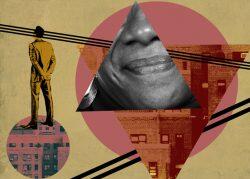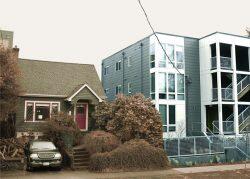Black applicants are being denied mortgages at a significantly higher rate than white ones — and the gap has widened during the pandemic, a study found.
A Zillow analysis of data from the Home Mortgage Disclosure Act revealed the rejection rate was 84 percent higher for Black applicants than white counterparts in 2020. That’s 10 percentage points higher than it was the year before.
Overall, 19.8 percent Black applicants were denied a mortgage in 2020, versus 10.7 percent of white applicants.
Mississippi, by some measures the poorest state in the U.S., had the highest rejection rate for Black applicants: 31 percent.
“Homeowners have seen a plethora of housing gains during the pandemic, but the growing disparity between Black and white homeownership rates and home values paints the picture of who those winners actually are,” said Zillow economist Nicole Bachaud.
Insufficient credit is one of the main explanations for the denials of Black applicants. According to Zillow, more than 6 percent of Black applicants were denied for that reason. It was the cause of 37 percent of their rejections.
Read more


Traditional financial services are less prevalent in Black communities, leading some borrowers to use costly services like payday loans, which are difficult to repay and thus can damage credit scores. In 2019, research showed about one in seven Black households were unbanked, making it harder to save for a substantial down payment. Larger down payments improve the odds of getting a mortgage.
Another issue is that Black-owned homes are worth about 17 percent less than the typical American home. Disparities in appraisals result in less home equity and higher loan-to-value ratios, which increase the chances of rejection.
Homes in predominantly Black communities often have higher property taxes, measured against their value. The unequal impact of the pandemic on incomes was another factor.
Obtaining a mortgage is vital for most would-be homeowners. Homeownership fosters wealth accumulation and provides other economic and community benefits, so difficulty obtaining a mortgage can have a negative and long-term impact on a family.
The rate of Black homeownership in the United States is 44 percent, an improvement from 40.6 percent in 2019’s second quarter but below a 49.7 percent peak in 2004. But the gains of the 2000s proved illusory, as the bursting of the housing bubble wiped out billions of dollars in Black owners’ home equity.
Solutions to close the gap are emerging, such as targeted policies to get Black Americans into homeownership. Government lenders Freddie Mac and Fannie Mae have started allowing rental payments to count towards credit history, which could help more Black renters qualify for mortgages.
